|
|
|
Sort Order |
|
|
|
Items / Page
|
|
|
|
|
|
|
| Srl | Item |
| 1 |
ID:
128598
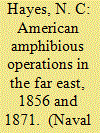

|
|
|
|
|
| Publication |
2013.
|
| Summary/Abstract |
The author examines two little known small scale amphibious operations from the mid 19th century, which still have some relevance to operations today.
|
|
|
|
|
|
|
|
|
|
|
|
|
|
|
|
| 2 |
ID:
133547
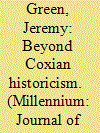

|
|
|
|
|
| Publication |
2014.
|
| Summary/Abstract |
This article scrutinises Robert Cox's theorisation of 19th century world order, proposing 'uneven and combined development' as an alternative conceptual approach. I contend that Cox's understanding of 19th century world order is insufficient as it neglects the significance of German ascendance. Privileging hegemonic construction of world order, Cox's account of the decomposition of Pax Britannica reifies the neo-realist anarchy problematique. Overall, Cox exaggerates the degree of rupture between phases of world order, obscuring developmental continuities that produce different 'geopolitical' contexts. Uneven and combined development, I propose, enables a fruitful reappraisal of the period. Process-based international historical sociology is suggested as an alternative way to think about 19th century world order and critical IR.
|
|
|
|
|
|
|
|
|
|
|
|
|
|
|
|
| 3 |
ID:
124310
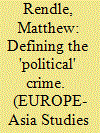

|
|
|
|
|
| Publication |
2013.
|
| Summary/Abstract |
After the October Revolution, the Bolsheviks established revolutionary tribunals to judge 'counter-revolutionary' and 'political' crimes. Amid conflicting reports from contemporaries on the effectiveness of these new courts, this essay examines their development over the first year of their existence. It argues that whilst tribunals were initially too inefficient for the regime, forcing greater central control over them, they played an important role in defining what constituted counter-revolution. In doing so, they promoted the regime's ideology, imparted an image of legality to the regime's actions, and helped the Bolsheviks to exert their control over a fragmented and diverse political landscape.
|
|
|
|
|
|
|
|
|
|
|
|
|
|
|
|
| 4 |
ID:
129676
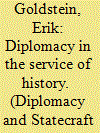

|
|
|
|
|
| Publication |
2014.
|
| Summary/Abstract |
In 1898 Governor William Bradford's early history of the Plymouth Colony was returned to Massachusetts through diplomatic, and sub-diplomatic, efforts. This marked an important stage in the growing Anglo-American rapprochement. It also illustrates an early episode of Cultural Diplomacy, as well as of repatriation of a cultural object.
|
|
|
|
|
|
|
|
|
|
|
|
|
|
|
|
| 5 |
ID:
131560
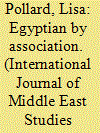

|
|
|
|
|
| Publication |
2014.
|
| Summary/Abstract |
In this article I argue that the Egyptian state emerged as a welfare provider in the mid-20th century, first by depending on the services of charitable societies to feed, educate, and provide medical assistance to the poor, and later by imitating and harnessing the activities of charitable societies. Drawing on correspondence between the state and service societies from the 1880s to 1945, when King Faruq (r. 1936-52) granted the Egyptian Ministry of Social Affairs (MOSA) the authority to define and to circumscribe the activities of social welfare organizations, the article illustrates the interactions of and the similarities between private and state-sponsored charity. The article further suggests that the establishment of MOSA helped to consolidate the hegemony of the Egyptian state over society and, at the same time, exemplified a dialectical process of state formation engaged in by Egyptian heads of state, service organizations, and the Egyptians whose needs they served.
|
|
|
|
|
|
|
|
|
|
|
|
|
|
|
|
| 6 |
ID:
128220
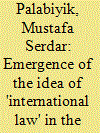

|
|
|
|
|
| Publication |
2014.
|
| Summary/Abstract |
The literature on the Ottoman Empire's position in the European states system generally considers the Treaty of Paris as a landmark event for the European states' recognition of the Ottoman participation in the European concert and the advantages of European international law. This article argues that this consideration overestimates the impact of the Treaty of Paris and reveals that before 1856, the Ottoman Empire was a part of the European states system and was subject to European international law both in terms of treaty-making practices and in the utilization of European customary law. Moreover, the article argues that the Ottomans were interested in the concept of international law before the Treaty of Paris. The existence of archival documents on Ottoman dealings with the European states and the publication of two translations from the European international law treatises before the Treaty of Paris indicate that the Ottomans interest in international law was to ensure the survival of the empire.
|
|
|
|
|
|
|
|
|
|
|
|
|
|
|
|
| 7 |
ID:
001176


|
|
|
|
|
| Publication |
Westport, Greenwood Press, 1996.
|
| Description |
x, 217p.Hbk
|
| Standard Number |
0313290768
|
|
|
|
|
|
|
|
|
|
|
|
Copies: C:1/I:0,R:0,Q:0
Circulation
| Accession# | Call# | Current Location | Status | Policy | Location |
| 040729 | 909.81/THA 040729 | Main | On Shelf | General | |
|
|
|
|
| 8 |
ID:
128211
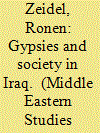

|
|
|
|
|
| Publication |
2014.
|
| Summary/Abstract |
This article focuses on a Gypsy group that lives in Iraq, away from the main concentrations in Europe. Although Gypsies apparently arrived in Mesopotamia around the tenth century, long before many Arab tribes and despite their cultural assimilation into the local culture, Gypsies were not assimilated into the local society, partly because the local society rejected them and partly because they did not want to assimilate. The difference in the attitude of the local society to the Gypsies lies in their perceived 'impurity' and their occupation, dancing and music, in which Gypsy women are employed. Iraqi Gypsies had long suffered from social as well as governmental discrimination: Iraqi citizenship was given to them only in 1979. Unexpectedly, it was the Iraqi dictatorship of Saddam Hussein which improved their status considerably, yet, at the same time, made them dependent on the regime. Consequently, after the fall of the Ba`th regime, Gypsies now face a bleak future. The article gives a concise historical presentation of Gypsy life in twentieth century Iraq and takes a closer look at literary views of the Gypsies, reflecting the limits of liberal attitudes toward them.
|
|
|
|
|
|
|
|
|
|
|
|
|
|
|
|
| 9 |
ID:
133821
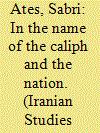

|
|
|
|
|
| Publication |
2014.
|
| Summary/Abstract |
Under the leadership of Sheikh Ubeidullah of Nehri, in the last months of 1880 tens of thousands of Iranian and Ottoman Kurds marched on northwestern Iran and temporarily took control of several cities. This movement, coupled with the response of the Iranian army, resulted in great violence and displacement. Despite its failure, in the limited literature on Kurds this revolt is seen as the birth of Kurdish nationalism. Using extensive and underutilized historical documents-including official correspondence from Iranian and Ottoman authorities as well as British consuls, and day-to-day reports and memoirs from American missionaries active in the region-this project suggests that Sultan Abdulhamid's (Sunni) pan-Islamist agenda, Shi'i-Sunni tensions, the rise of Armenian nationalism, and missionary activities in the region also played significant roles in the formation of this movement.
|
|
|
|
|
|
|
|
|
|
|
|
|
|
|
|
| 10 |
ID:
124287
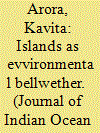

|
|
|
|
|
| Publication |
2013.
|
| Summary/Abstract |
In 1860 Henry Hennessy wrote that "if no great continents existed, but a great number of islands without any remarkble preponderance of land towards the tropical or polar regions, the mean temparature of the earth would be increased, and the distribution of heat over its surface rendered for more uniform."
|
|
|
|
|
|
|
|
|
|
|
|
|
|
|
|
| 11 |
ID:
153215
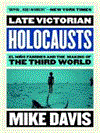

|
|
|
|
|
| Publication |
London, VERSO, 2017.
|
| Description |
x, 469p.pbk
|
| Standard Number |
9781784786625
|
|
|
|
|
|
|
|
|
|
|
|
Copies: C:1/I:0,R:0,Q:0
Circulation
| Accession# | Call# | Current Location | Status | Policy | Location |
| 059111 | 363.809172/DAV 059111 | Main | On Shelf | General | |
|
|
|
|
| 12 |
ID:
128492
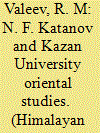

|
|
|
|
|
| Publication |
2013.
|
| Summary/Abstract |
This paper gives an appraisal of Katanov, one of the outstanding founders of Kazan University School of orientalism in the second half of nineteenth and early twentieth centuries. Professor N. F. Katanov is one of the bright and ?amboyant national scholar-thinkers, outstanding representatives of Russian science, education and culture. His life journey and activity reflected important events and tendencies of indigenous and oriental studies. N. F. Katanov's multifarious scientific and pedagogic activity is an unquestionable evidence of great achievements of indigenous orientalism at the turn of nineteenth-twentieth centuries. And his contribution to the development of Kazan oriental studies in this period is indeed invaluable. Since his studentship in Petersburg (1884-1888), his expedition to Southern Siberia and Eastern Turkestan (1889-1892) and tutorage in Kazan (1894-1922), N. F. Katanov's orientalistic activity is connected with complex research of languages, ethnography, folklore and generally spiritual life of the Turkic peoples in Sayan-Altai, Xinjiang, Volga region and Transurals. He had great in?uence on the development of indigenous Turcology in this period.
|
|
|
|
|
|
|
|
|
|
|
|
|
|
|
|
| 13 |
ID:
124275
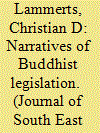

|
|
|
|
|
| Publication |
2013.
|
| Summary/Abstract |
For more than a century scholars of central and western mainland Southeast Asia have sought to characterise the status of dhammasattha - the predominant genre of written law from the region before colonialism - and define its authority vis-à-vis Pali Buddhism. For some, dhammasattha texts represent a predominantly 'secular' or 'customary' tradition, while for others they are seen as largely commensurate with, if not directly derived from, the religio-political ideas of a cosmopolitan and purportedly canonical 'Therav?da'. However, scholarship has yet to investigate the way that regional authors during the late premodern period themselves understood the character and legitimacy of written law. The present article examines seventeenth through nineteenth-century Burmese narratives concerning the genealogy and status of dhammasattha to advance a pluralist conception of the relationship between law and religion in Southeast Asian history. This analysis addresses a historical context where ideas concerning Buddhist textual authority were in the process of development, and where there were multiple and competing discourses of legal ideology in play. For elite monastic critics closely connected with royalty, dhammasattha stood in problematic relation to authoritative taxonomies of scripture, and its jurisprudence was seen to contradict authorised accounts of the origin and nature of Buddhist law; the genre thus required reform to be brought into alignment with what were construed as orthodox legal imaginaries. The principal hermeneutic move these monastic commentators performed to achieve this involved redescribing dhammasattha in light of such accounts as a variety of Buddhist royal legislation and written law as the prerogative of the Buddhist state.
|
|
|
|
|
|
|
|
|
|
|
|
|
|
|
|
| 14 |
ID:
129054
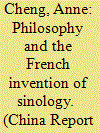

|
|
|
|
|
| Publication |
2014.
|
| Summary/Abstract |
At a time when Chinese intellectuals and academics are more and more interested in the way Westerners, especially sinologists, approach and study Chinese culture, it seems relevant to pause and reflect on the critical and diversified approaches contributed by European sinologies. Special attention should be paid more particularly to the French tradition, which was the very first to be set up in the early nineteenth century within various prestigious academic institutions that are still very much alive today, but which has been somewhat pushed to the background by the powerful thrust of American, and more generally Anglophone, sinology ever since the aftermath of the Second World War. This article proposes to look at the way the French invention of sinology in the nineteenth century was under the influence of the concomitant rise of philosophy as a specifically European academic discipline.
|
|
|
|
|
|
|
|
|
|
|
|
|
|
|
|
| 15 |
ID:
128137
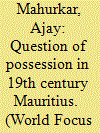

|
|
|
|
|
| Publication |
2014.
|
| Summary/Abstract |
This paper is based on the debates on the questions of possessions I recovered from the Mauritius section of the university of Mauritius library. The Mauritius Supreme Court from mid 19th century onward was quite concerned about this question at a time when the planters were selling off portions of land to Indians and others in a phenomenon referred to as grand morcellement
|
|
|
|
|
|
|
|
|
|
|
|
|
|
|
|
| 16 |
ID:
124295
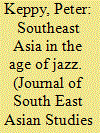

|
|
|
|
|
| Publication |
2013.
|
| Summary/Abstract |
Referencing insights from Cultural Studies and taking a jazz-age perspective, this essay aims to historicise and 'locate the popular' in colonial Indonesia and the Philippines. A new cultural era dawned in the 1920s urban hubs of Southeast Asia, associated with the creation of novel forms of vernacular literature, theatre, music and their consumption via the print press, gramophone, radio broadcasting and cinema. By investigating the complex relationship between the elusive phenomena of modernity, cosmopolitanism and nationalism as articulated by two pioneering artists active in commercial music and theatre, the social significance of popular culture is scrutinised.
|
|
|
|
|
|
|
|
|
|
|
|
|
|
|
|
| 17 |
ID:
128761


|
|
|
|
|
| Publication |
2014.
|
| Summary/Abstract |
In Spain, the existence of industries devoted to the production of military equipment dates back to the thirteenth century. The success of the Spanish empire of the sixteenth and seventeenth centuries can be explained, in part, by the early production of battleships, fire guns, gunpowder and explosives, artillery pieces, and swords. Some of the factories created during this period of history are still in operation today, although deeply transformed and integrated within larger and modern organizations.
|
|
|
|
|
|
|
|
|
|
|
|
|
|
|
|
| 18 |
ID:
124538
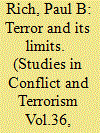

|
|
|
|
|
| Publication |
2013.
|
| Summary/Abstract |
This article argues that much of the historical analysis of terror and terrorism in history has been weak in understanding the limits on terrorist activity and how terrorist campaigns eventually end. Reviewing three recent studies that examine various aspects of terrorism and the language of terror, the article seeks to show that states often play a major role in the way terrorist movements develop and eventually end up either defeated or moving into mainstream political engagement. The article points to a number of examples to illuminate this including the Carbonara in nineteenth century Italy, the Paris Commune and the ending segregation in the U.S. South in the 1960s.
|
|
|
|
|
|
|
|
|
|
|
|
|
|
|
|
| 19 |
ID:
128209


|
|
|
|
|
| Publication |
2014.
|
| Summary/Abstract |
Throughout the nineteenth century British statesmen had to concern themselves with the condition and prospects of the Ottoman Empire, both in Europe and the Near East. This article concentrates on the views and attitudes of Lord Palmerston, W.E. Gladstone, and the third Marquess of Salisbury, all of whom were in high office for over 30 years. Palmerston, who considered the Ottoman Empire an essential component in the balance of power, was the most Turcophile of the three. Gladstone attempted to bring into existence a Concert of Europe with authority to support the continued existence of the empire. Salisbury was prepared to contemplate an orderly dismemberment of it, in such a way as to reduce rivalry between the greater powers.
|
|
|
|
|
|
|
|
|
|
|
|
|
|
|
|
| 20 |
ID:
128219
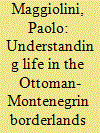

|
|
|
|
|
| Publication |
2014.
|
| Summary/Abstract |
The paper reconsiders the development of decentralization/centralization dynamics during the Ottoman Empire, focusing on the Ottoman-Montenegrin borderlands of Northern Albania with particular reference to the Mirdite territory inhabited by Catholic tribes. First, the paper describes the local socio-political system and balance of power in Mirdite territory before the enactment of the Gulhane decree. Secondly, the paper focuses on the developments and changes occurring in this land during the Tanzimat. Interaction, intertwining and overlapping between different strategies and policies are analysed in regard to the relationship between Catholic tribes, missionaries and Ottoman officials. Because of them, the changes and developments in the local administrative system occurring in both the religious and the political dimensions during the last part of the nineteenth century were expressions of the process of decentralization/centralization triggered by Istanbul from the third decade of the nineteenth century on.
|
|
|
|
|
|
|
|
|
|
|
|
|
|
|
|
|
|
|
|
|